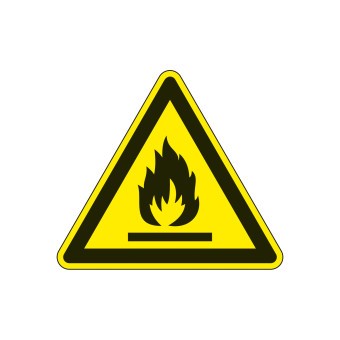Neodymium magnets can pinch very hard. They must be handled with great care to avoid personal injury, damage to objects, or the magnet itself.

Powerful magnets could cause serious injury.
Neodymium magnets have a very strong attractive force.
Unsafe handling may cause jamming of fingers or skin in between the magnets, leading to contusions and bruises.
Wear heavy protective gloves when handling larger magnets.

Neodymium magnets are not toys.
Neodymium magnets are not for children. Small magnets can pose a choking hazard. If multiple magnets are swallowed, they can attach through intestine walls. This can cause a serious health risk, requiring immediate, emergency surgery if correctly diagnosed.

Neodymium magnets can affect pacemakers.
The strong magnetic fields near neodymium magnets can affect pacemakers, ICDs, and other implanted medical devices. Therefore, care must be taken to avoid inadvertently deactivating such devices.

Neodymium magnets are brittle and fragile.
Neodymium magnets are made of hard, brittle material. Although they are made of metal and have a shiny, metallic appearance in their nickel plating, they are not as durable as steel.
Neodymium magnets may peel, chip, crack, or shatter if allowed to slam together. Wear Eye protection when handling magnets, since shattering magnets emit small fragments at high speeds.

Magnets can affect magnetic media.
The strong magnetic fields near neodymium magnets can damage magnetic media such as floppy disks, credit cards, magnetic I.D. cards, cassette tapes, videotapes, or other such devices. They can also damage mechanical watches, televisions, VCRs, computer monitors, and CRT displays. Avoid placing neodymium magnets near electronic appliances.

Neodymium magnets demagnetize at high temperatures.
While operating temperatures are often listed as 80℃ (175℉), the actual maximum operating temperature of a magnet may vary depending on the grade, magnet shape, and how it is used.

Neodymium magnet powder or dust is flammable.
Avoid drilling or machining neodymium magnets. When ground into dust or powder, this material is highly flammable.

People who are allergic to nickel should avoid prolonged contact with magnets.
A small percentage of people are allergic to nickel, and the allergic reaction can cause redness and a skin rash. Those with nickel allergies should avoid directly handling with nickel-plated neodymium magnets.

Strong magnetic fields can interfere with compasses and navigation.
IATA (International Air Transport Association) and US Federal rules and regulations cover shipping magnets by air and ground delivery. Magnetic fields can influence compasses or magnetometers used in air transport. They can also affect the internal compasses of smartphones and GPS devices.

Neodymium magnets can corrode.
Neodymium magnets can rust or corrode in the presence of moisture. While the three-layer, nickel-copper-nickel plating on most of our magnets provides enough protection for many applications, they are not waterproof. If used underwater, outdoors, or in a moist environment, they may corrode and lose magnetic strength.
Send us an Inquiry now to find out more Information and the latest prices, thanks!
United States
Drop files here or